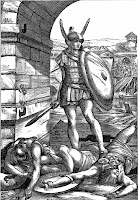New Years 2010

Here we are - another new year's day. It never was much of a holiday and if I had my way, it would be dropped in favor of some other holiday - Martin Luther King day, for example.
Did you know that New Years Day was first celebrated 4,000 years ago by the ancient Babylonians? Back then it was the first New Moon after the first Vernal Equinox. Start of Spring seemed the logical time to start a new year - rebirth of the plants, cooling temperatures, and all that.
January 1 is purely arbitrary. Yet, it has become traditional. It is hard for me to imagine treating January 1 as just another workday. I've stayed up to midnight all my adult life. It just seems natural to experience the first moments of a new year. - And when it begins a new decade, as well (let alone a new century!) one is hard pressed to sleep the night away.
So, this holiday has practical value.
My New Year Resolutions: Get CPE done early. Keep up this blog regularly.












